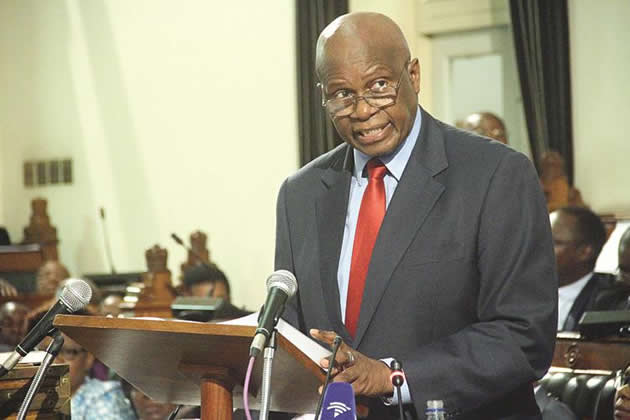Taming rogue drivers…Chinamasa cracks whip on unruly elements

Pamela Shumba Senior Reporter
MOTORISTS must now think twice before committing traffic offences following an upward review of traffic fines by the government with effect from January next year.
Announcing the 2016 National Budget on Thursday, Finance and Economic Development Minister Patrick Chinamasa outlined the new fines structure in a move he said was meant to instil a sense of discipline among motorists and reduce carnage on the roads.
The Minister said the current scale of fines was not deterrent enough for motorists to adhere to the country’s traffic rules and regulations.
He said motorists will now pay a $100 fine for offences that were attracting a $20 fine. These include proceeding through a red robot, overtaking over a solid white line, driving without a driver’s licence or driving a vehicle without a functioning foot brake.
The Minister said for failing to signal slowing down, stopping or turning right or left, cutting a corner, encroaching over white lines at a robot, proceeding against amber robot and abusive behaviour, offenders will now pay $20 up from $10.
He said for double parking, leaks of fuel and oil, discarding rubbish from vehicles or spitting in or from vehicles, offenders will pay $10 up from $5.
“High levels of carnage continue to be witnessed on the country’s roads. Most of the carnage is a result of human error arising from failure to observe road traffic regulations. Some motorists, particularly, commuter omnibus and ‘mshika-shika’ (pirate taxi) drivers, continue to risk the lives of passengers and other motorists due to negligent driving,” said Minister Chinamasa.
“Road traffic fines are meant to be a deterrent for criminal behaviour. The current standard scale of fines which was last reviewed in 2009, doesn’t however, promote safety and discipline on the roads. The traffic fines are generally lower than those obtaining in the region. I, therefore, propose to review the level of road traffic fines to begin from level 2 and end at level 4 of the standard scale of fines, with effect from January 1, 2016.”
He said the most common offences committed by motorists include proceeding against red robots, overtaking against white solid lines, driving on the wrong side of the road, dropping passengers at undesignated points and failing to stop when instructed to do so by the police, among others.
According to a recent transport parliamentary committee report, nearly 30,000 people were killed in road accidents between 1997 and 2013, with nearly 288,000 being injured over the same period.
Eighty five percent of the accidents were blamed on human error.
Drunken driving, fatigue, use of cell phones when driving and going through red robots were cited amongst the causes of accidents.
Bad roads, stray animals, inadequate road signage and markings were also cited.












Comments